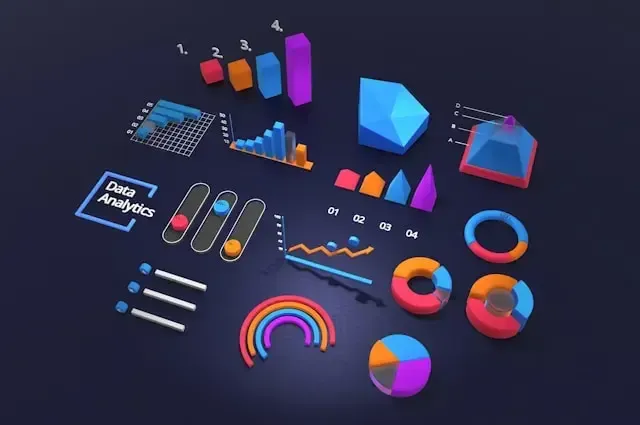Discover the future of smart homes, where cutting-edge technology seamlessly integrates to enhance comfort, efficiency, and security. Explore how AI, IoT, and 5G connectivity revolutionize living spaces, delivering personalized experiences, advanced energy management, and top-tier security. Unveil the innovations shaping tomorrow’s homes in this comprehensive guide.
Introduction
Smart home has evolved from being what was once believed to only be possible in futuristic movies into an actually feasible occurrence in contemporary homes at accelerated technological development and increased interconnectivity. Smart homes have not only moved on from being single devices, such as smart speakers or smart thermostats but are systems where all things in a house such as lights, climate, security, and entertainment all integrate. This has further been fueled by the general trend of the consumer searching for convenience, personalization and control in the palm of their hand and as a result, smart home solutions have been highly sought after. This shift is not just the result of convenience alone, but on enhancing the living experience towards a composited interaction of devices that can learn from users and, at the same time, make homes safer and smarter.
In the future, the smart home market will advance to the next level through the development by integrating artificial intelligence or machine learning, Internet of Things, or 5G technology. They portend to create smarter home environments that are more adaptive to users’ needs, and able to incorporate learning to improve the occupants’ quality of life. The latter will encompass not only the improvement of various tactics ensuring greater efficiency and convenience in managing home matters but also the development of housing that is intelligent and more importantly safe and sustainable. As we face this future, these technologies can be evaluated against the three pillars that constitute the smart home comfort, efficiency and security.
1. Seamless Integration of Devices
Smart technology in homes will carry on with the trends of having multiple devices to control various functions, and will make homes intelligent units. Instead of standalone systems we are witnessing tendencies towards integrated systems where all the appliances in the kitchen, lights and the entertainment system are fully synchronized. Interest is also being demonstrated by giants such as Apple, Google and Amazon, in developing environments that ensure devices are interoperable with most, if not all, other devices. For instance, one can consider a smart refrigerator; the refrigerator will change the temperature for the foods inside based on the weather outside or the smart oven will be tipped by the smart refrigerator to switch on if it has noticed that dinner is being prepared. It pushes homes to become living organisms that respond, without delay, to your wants and the conditions prevailing within the house.
What makes this integration sophisticated is that the usage of AI and machine learning within automating these processes is increasingly common this enable these systems to converse and even predict your needs and wants. Think of a living space where you go to sit, relax and enjoy good music in the background or when you come back from work and find the lights automatically set for the evening. This intelligence behind integration is the fact that your home knows patterns and behaviors and, therefore, the commands are natural. While smart homes currently are generally operated from voice or touch command, the next evolution will see the homes proactively perform actions even before they are requested thus taking the living experience to a whole new level.
2. Enhancing Comfort through Personalization
The essence of smart home movement lies in an ability to deliver the highest level of comfort with the help of customization. Technology for homes in the future will be smart and will personalize your home experience to be as unique and special as the individual that occupies that home. Smart technologies such as artificial intelligence and machine learning mean that devices can now pickup on your behavior patterns, and program temperature, lights or even entertainment as per this detected routine. For instance, a home automated system can learn to increase the temperature in the smart house gradually in the morning to make a warm wakeup or opt for switching on lights according to the circadian rhythm or playing an individual’s favorite list on entering home from work.
Furthermore, with voice control, gesture-based systems or even the facial recognition system now being the revolutionized way of controlling one’s living space. The days when it was necessary to adjust something manually are over — for example, just voicing a desire or moving your hand can change the surroundings to certain shade. This high level of customization not only entails the aspect of convenience solely, but also the trace of luxury which is involved while homes are getting transformed into spaces that reflect the user’s wish. The advancement of home personalization is going to continue to the point where the home can predict what we want and when we want and how we want it so that the home is even more fulfilling and accommodating.
3. Energy Efficiency and Sustainability
It may sound glamorous and luxurious but the science of smart homes is not all about comfort; they are pointing towards the future of energy efficiency and resource conservation. In the current world that faces many problems such as climatic change and the importance of managing energy consumptions, smart homes encompass more than the home automation technology.
Some, such as the Smart thermostats, learn from your pattern and regulate heating or cooling and other use thus saving energy when it is not necessary while the smart lighting system only turns on the lights when required. Not only does this technology cut the use of energy however, it also cuts on the expenses of most homeowners, enabling them to conserve electricity without necessarily straining.
The advancements in smart homes in the future energy efficiency will be carried forward through the integration of renewable energy sources like the solar power. This is because smart homes are gradually being developed to consist of solar panels, energy storage facilities as well as smart grid systems, the homeowner would be in a position to control the manner in which energy is produced, stored and used. The need for big data analytics and AI will be significant to control these systems by maximizing use of energy while at the same time minimizing compromise of comfort. Last but not least, smart homes will not only cut user’s energy consumption but also contribute to more important environmental goals and thereby make our homes more eco-friendly.
4. Advanced Security Features
In the area we now know as the smart homes, security has become one of the modern necessities few of which are as important as the other. Modern smart home security systems offer the homeowners intricate means and methods by which they can monitor, secure and manage the interiors of their home. Although we have been able to have basic forms of security that have been common for centuries such as the door locks, security in today’s intelligent homes has been taken to another level. Unlike alarms these systems offer other smart home devices to form a multi leveled security system that can easily be controlled remotely from anywhere in the world.
It becomes more interconnected as the technology of smart home is progressed, but it creates new issues of cybersecurity besides. Since the devices are connected and communicate with each other home become susceptible to hacking and breaches. It was found that the development of smart home security systems will not only have to tackle the aspect of security concerns as a physical barrier for the inhabitants of the smart home, but the protection of data as their electronic eyes and ears. Better encryption, AI-based threat identification, blockchain can be expected to become the norm for making smart homes as much safe in digital sphere as in physical. On this constantly developing environment, security will continue to be an important factor that will enable homeowners to rely fully on the systems intended to protect them.
5. The Role of IoT and 5G Connectivity
The IoT and 5G technology will play the major roles in the development of the smart homes of the future. IoT ties all the smart devices in the house together and allows for two way interaction between them. Starting from need essential appliances such as refrigerator and thermostat to moderate comfort facilities such as door bell and fancy entertainment facilities, IoT environment makes it certain that each of these contribute to make the home experience a better one. With the growth in the numbers of intelligent devices, the prospect of having new application and innovation is bound to increase thus improving on the hospitality efficiencies in the home setting.
The revolution that is going to be powered by smart home technology is going to heavily rely on 5G connectivity, mainly due to the fact that it will supply the necessary bandwidth to guarantee the speeds necessary for the multiple connected gadgets necessary to support and power smart homes. In other words, with 5G, the homeowners will have better connectivity, less lag time in response to commands as well as improved bandwidth in their smart systems. This improvement of connection will not only add comfort to daily lives but also facilitate a new trend in home application, like AR home interfaces and deeper AI integration. With more developments in IoT and 5G technologies smart homes will be smarter, more responsive and will be an essential part of people’s lives.
Conclusion
In this post, I will argue that smart home technology is set to shift to a new level that will define a new era of smart homes that will grant people optimum comfort, efficiency, and security. As the seamless device integration, personalized home environment and novel energy conservation technologies these smart homes have been defined, they are expected to be an important trend in the future dwelling. Based on the current needs of people, and the possibilities of their development, smart homes can not only be more comfortable but also more effective and specific to people’s needs, being environmentally friendly to the maximum degree, as the world tries to step away from energy wastage and unnecessary energy consumption.
Turning to the future, it becomes possible to forecast even deeper development of such novelties as smart homes, artificial intelligence, IoT technology, connectivity and so on. All of these technologies will keep on improving the user experience while dealing with other issues for example in cybersecurity. Smart homes will become even smarter and more integrated with time and will contribute towards the creation of sustainable, safe, and comfortable living spaces in the future – that’s why the future of smart homes is really quite bright.


























